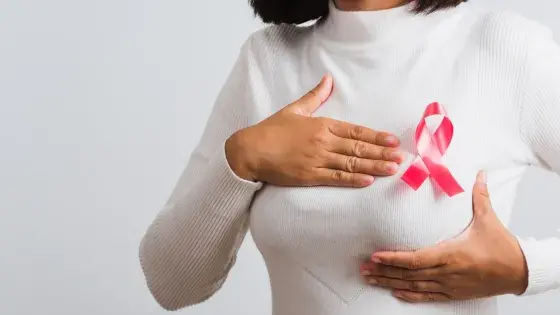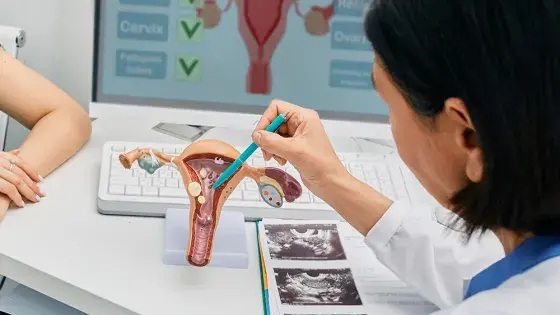A Personal Reflection written by Dr Shabita Jeevaratnam, Occupational Health Physician
At just 43 years old, Jill's life took an unexpected turn when she was diagnosed with breast cancer. She was living what many would consider an idyllic life – happily married, seemingly healthy, enjoying rowing three times a week and working full-time in her dream job in Germany. However, a persistent pain in her left chest prompted her to visit her GP.
The initial examination revealed something concerning, leading to a series of urgent investigations and treatments. Jill faced numerous trips between the UK and Germany, where advanced breast cancer was confirmed. The diagnosis required immediate and aggressive treatment, including a mastectomy and chemotherapy. Despite the gravity of the situation, Jill's optimism shone through. During one of our weekly FaceTime calls, she light-heartedly suggested, “Let’s go hat shopping” in preparation for the hair loss that would be a side-effect of her treatment. The light moment was met with silence, as the reality of her condition weighed heavily on all of us.
As her treatment plan unfolded, schedules were rearranged to ensure loved ones could be by her side during the challenging journey ahead. Jill endured months of chemotherapy, the emotional toll of losing her hair and even experimented with alternative therapies, including herbal remedies and wild mushrooms. Despite her unwavering determination and the efforts of her medical team, the cancer progressed.
In the end, Jill passed away, leaving an indelible mark on all who knew her. As part of her wishes, her husband planted a tree in her memory. I still remember us huddling in the cold that day, tears streaming down our faces as we honoured her request for an alternative burial.
Jill’s story is a reminder of the importance of early detection and awareness of breast cancer. Her journey has profoundly impacted me, inspiring me to perform monthly breast self-examinations and to further educate my patients about the importance of doing the same. Breast cancer can affect anyone, regardless of age, lifestyle or health status, and early detection can make all the difference.
Learn more about what breast cancer is, the risks and how to correctly check your breasts:
Helpful Tips for Navigating Your Breast Cancer Journey
If you’ve recently been diagnosed with breast cancer, here are some practical tips and advice to support you every step of the way.
In the UK under the Equality Act 2010, cancer is classified as a disability. This means that your employer is legally required to make reasonable adjustments to support you at work. It can be beneficial to have an honest discussion with your employer or manager about your needs. While you are not required to disclose all details of your condition, sharing enough to help them understand your limitations can pave the way for reasonable adjustments. If you're not comfortable doing this alone, you might ask your occupational health team or a union representative to support you in the conversation.
Reasonable adjustments could include flexible working hours, lighter workloads or even providing a private space for rest during the day. If you're unsure about your rights, consider reaching out to organisations like Macmillan Cancer Support or Citizens Advice for guidance.
You should also:
- Pace Yourself: It's crucial to listen to your body and avoid overcommitting. Gradually increasing your work hours or responsibilities can help you ease back into your role without overwhelming yourself.
- Set Boundaries: Make clear distinctions between work and personal time to ensure you have time to rest and recover.
- Minimise Stress: Consider mindfulness practices, deep breathing or light exercise to help manage stress levels. If you're feeling burnt out, speak to your GP or a counsellor.
Don't hesitate to lean on support groups or communities for individuals who have been through similar experiences. Organisations like Macmillan Cancer Support, Breast Cancer Now and Maggie’s Centres offer both practical and emotional assistance. They can connect you with others who can share their own strategies for balancing work and health.
Ultimately, the key is to focus on what works best for you, advocating for your needs while prioritising your recovery and wellbeing. Take things one step at a time and remember that there are resources and people willing to support you throughout this journey.


